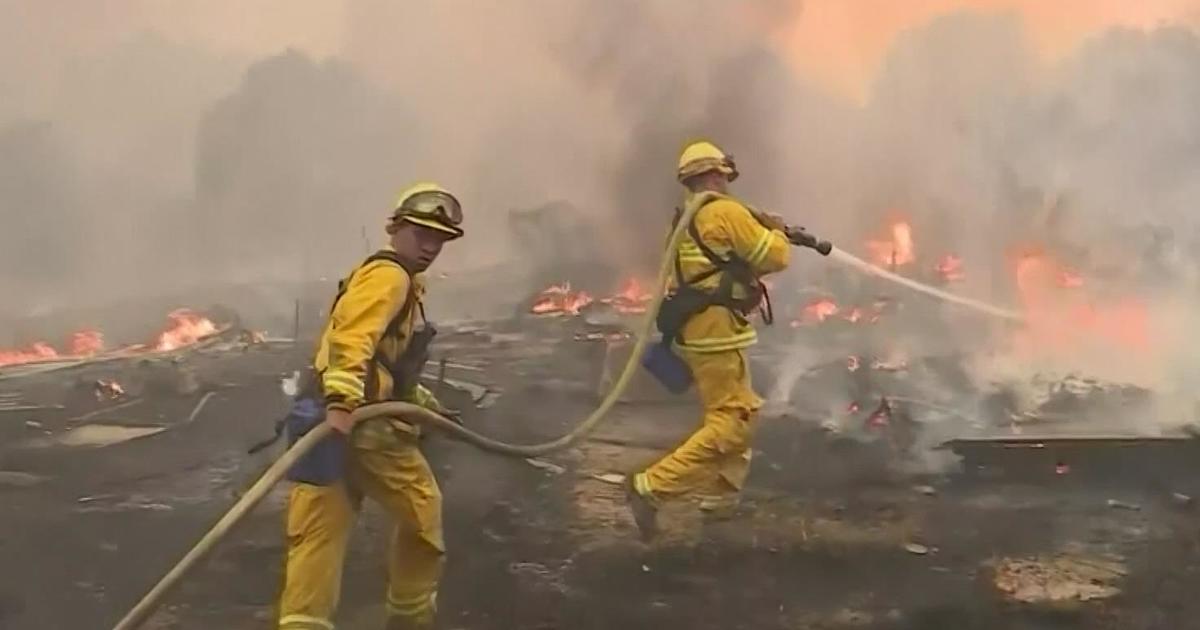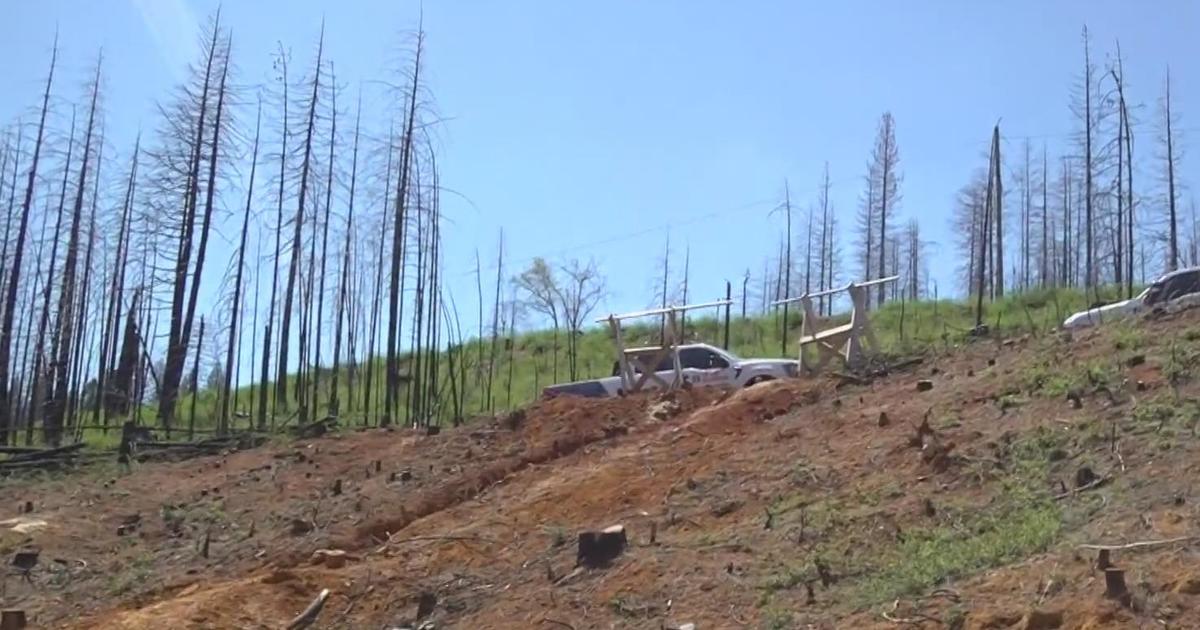Is PG&E Trying To Pass Possible Wildfire Cost Onto Ratepayers?
SACRAMENTO (CBS13) – While the investigation continues into the cause of devastating California wildfires, PG&E is preparing to pass the cost to customers if the utility is found liable.
Calfire continues to investigate the cause of fires that killed dozens earlier this month that devastated much of Northern California. PG&E has been accused of sparking the most destructive of those wildfires: the Tubbs Fire. Now, consumer advocates are concerned if the company is found responsible it could make customers pick up the tab.
"It's an outrage that utilities would want to push the burden of their negligence onto the backs of customers," said state Sen. Jerry Hill (D-San Mateo).
Hundreds of thousands of acres have burned in Northern California since October. Calfire and the California Public Utilities Commission are investigating whether or not PG&E power lines are to blame for sparking the flames.
PG&E has "weighed-in" on a different case that could set a precedent for how the state handles the fallout costs from these latest wildfires.
In 2007, San Diego Gas and Electric was found responsible for three fires in San Diego County, but the company still wants to charge its customers the $379 million not covered by insurance.
"You don't reward bad behavior," Hill said. "If you have a child doing things wrong, you don't excuse them and give them extra candy because of it!"
PG&E says it has $800 million in insurance, but damage from the wine country fires could go up to an estimated $12 billion.
"They are laying the groundwork so if there is responsibility for the wine country fires, and all the devastation that we saw, they'll want to ship that to ratepayers," Hill said. "We have to take a strong stand and position to not allow that to happen."
"The decision that the commission makes about SDG&E [San Diego Gas & Electric] would establish some kind of precedent that PG&E might rely on later," said Mindy Spatt, a spokesperson with The Utility Reform Network (TURN), a consumer advocacy group.
Last week, PG&E sat down with a PUC commissioner and asked that, in San Diego's case, the commission not establish a "precedent of disproportionately placing all of the risk on the utilities rather than spreading the costs."
The reasoning: wildfire risk is increasing with climate change, drought and bark beetle infestation, so fires can't all be controlled by the electric companies.
But if PG&E is found responsible for a fire, why wouldn't the Public Utilities Commission make it pay?
"Their profit every year is about $1 billion," Hill explained. "So this could conceivably put [PG&E] out of business, put them into bankruptcy."
Still, Spatt says it's up to the shareholders to foot the bill if the company is found to be at fault.
"If PG& E does have responsibility, the PUC [should] hold it accountable for every single penny," Spatt said. "Every single penny!"
We reached out to PG&E, and spokesperson Donald Cutler sent us the following statement:
"Catastrophic wildfires pose real risks to our entire state. They don't recognize or respect the boundaries of one energy company versus another. PG&E felt it was important to share our perspective with the Commission on this vital state-wide safety topic. Wildfires and the method with which they are treated presently have real world and potential long-term impacts on the operations, risk management and financial standing of every energy company in the state. We felt it was important that the Commission hear the perspectives of all the energy companies that operate in California."
Two judges already denied San Diego Gas & Electric's request to pass along the $379 million to customers. The Public Utilities Commission typically agrees with a judge's recommendation but they aren't obligated to do so.
"Here's PG&E with big chunks of its territory in flames and the priority is to go to the commission and lobby against a judge's decision?" Spatt said.
Working along with colleagues, Hill told CBS13 he's working on legislation that would prohibit companies from passing on the costs to customers. He hopes to be able to introduce a bill when lawmakers return to the Capitol in January.



